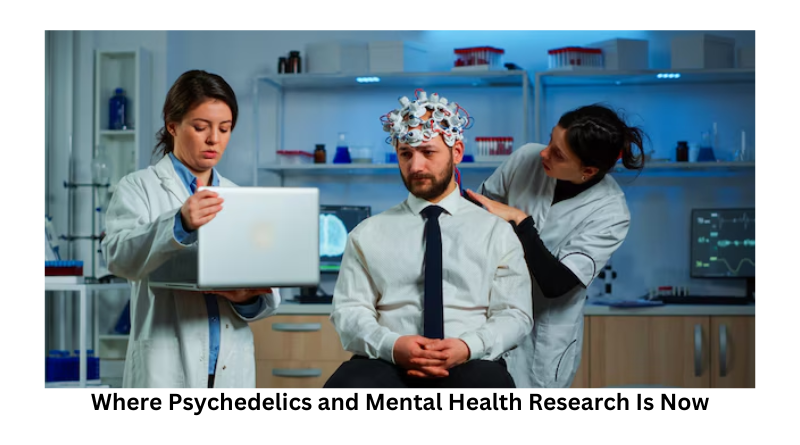Where Psychedelics and Mental Health Research Is Now
Psychedelics have been gaining popularity. Research into psychedelic substances including psilocybin, ketamine, and LSD and their possible benefits for mental health is gaining traction. However, are psychedelics permitted? Is microdosing acceptable? There are a lot of questions because there is a lot of curiosity.
Psychedelics have long piqued the curiosity of the medical community. Researchers were already attempting to dissect their mind-alerting effects in the 1940s. The word “psychedelic” was coined in 1957 by Swiss scientist Humphrey Osmond and author Aldous Huxley (you may recall Brave New World). By the 1960s, research on patients nearing the end of their lives revealed that administering dosages of LSD reduced their pain and death-related anxieties.
I was taught that psychedelics, such as psilocybin, may still benefit the kinds of patients in those early trials when I was preparing to become a psychiatrist. That was not too long ago. Over the last five years, however, we have heard that tripping on mushrooms—literally—may also help cure some of the most prevalent mental health conditions of our day, including serious depression, PTSD, and various forms of drug use disorders. Our mental health may also benefit from other psychedelics. Now, where are we? Here is a summary of what we now know and don’t know about psychedelic medicine:
Psychedelics enhance mental well-being.The complexities of how psychedelics function are sometimes still being discovered. You’re at the proper place if you’re considering brain chemistry. Two things are believed to be occurring in your brain during a psychedelic dose session. First, your brain may create stronger and fresher connections thanks to the process of neuroplasticity.
Your neurons (or brain cells) can interact with one other more effectively as a result. In addition, psychedelics release hormones like oxytocin and mood-enhancing substances like serotonin and dopamine, which make you feel more at ease and hopeful. Psychedelic experiences are often characterized by a greater sense of empathy and connection. Psychedelics may provide a “window” into the mind that allows you to think differently about yourself in a way that encourages positive development when used in conjunction with conversation therapy. Scientists are now researching several intriguing topics, such as how psychedelics could help people ultimately stop their gambling or smoking habits.
In the majority of states, psychedelics are prohibited.
YOU MAY BE CONSIDERING: Sign me up—this sounds fantastic! Not so quickly; remember that most states and the federal government still prohibit psychedelics. However, several states, like as Colorado and Oregon, have decriminalized psychedelics completely or have less stringent restrictions. Massachusetts voters rejected a proposal to legalize psychedelics in the Bay State, whereas Missouri just permitted the use of psilocybin for the medical treatment of ailments including PTSD and end-of-life care. Psilocybin, mescaline, ayahuasca, and ibogaine are among the psychedelics linked to some substantial hazards, according to the Massachusetts Psychiatric Society. These concerns include an increase in ER visits and deadly automobile accidents caused by “drugged-driving.”
What about microdosing, though? It’s a mixed bag. While some research suggests that microdosing psychedelics, such as LSD, might enhance mood and improve sleep, other studies suggest that microdosing psilocybin or LSD has no effect on mental health. How about ketamine?
Although ketamine is frequently mentioned in discussions about psychedelic medicine, it really belongs to a group of medications known as “dissociative anesthetics.” In addition to being used for brief medical operations where the patient’s muscles do not need to be relaxed, it is occasionally used as a “pre-anesthetic” before general anesthesia.
But much like psychedelics, ketamine may also cause a “trip” at high dosages. For many years, doctors have administered ketamine intravenously or as “off label” medications, such as ketamine lozenges, to alleviate physical pain or depression. This indicates that while the FDA may not have approved certain ketamine formulations for this use, there was enough evidence to lead some physicians to conclude that the advantages would exceed the hazards. Esketamine, a nasal spray form of ketamine, was approved by the FDA in 2019 for treating depression that had not improved with standard antidepressants such as SSRIs (often known as “treatment-resistant depression”). Curiously, some people may find that ketamine helps them stop having suicidal thoughts. Keep in mind that ketamine may be addictive and may cause respiratory or cardiac issues, so it’s crucial to only obtain
